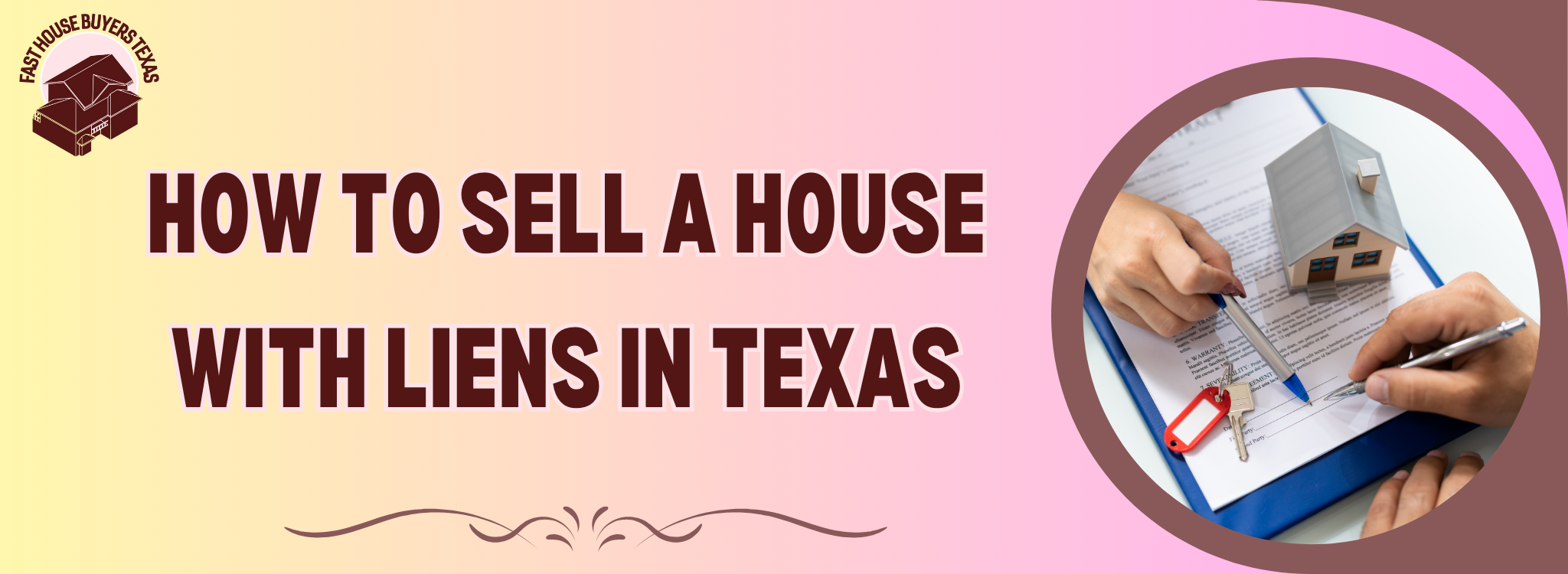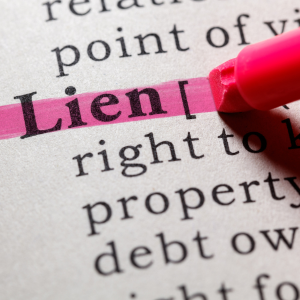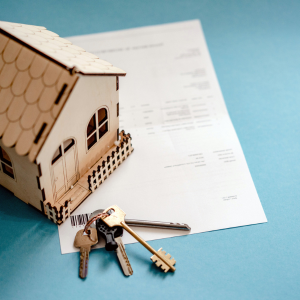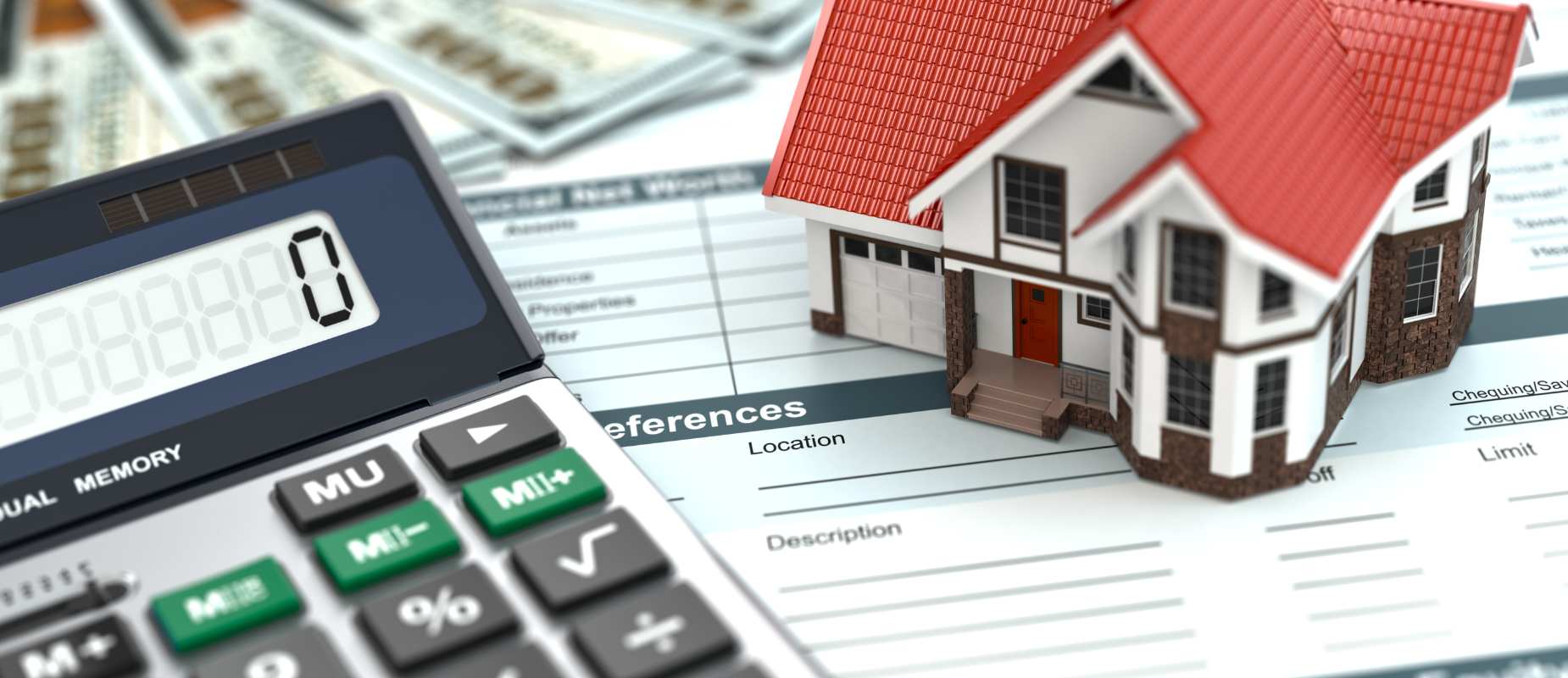
Understanding Liens on Texas Properties: Types and Identification
What are the different types of liens that can affect a Texas home sale?
Different issues can make it harder to sell a home in Texas. When you’re in real estate, you need to know these types:

- Tax Liens: The local government can place a lien on the property if the owner does not pay property taxes.
- Mechanic’s Liens: Contractors or suppliers might file a lien if they have not been paid for work done on the home.
- Judgment Liens: These occur from court judgments against the property owner and can affect the home’s title.
- HOA Liens: Homeowners Associations can file liens for unpaid dues or assessments.
Each type of lien has different legal effects, so it’s necessary to resolve them quickly to prevent issues in selling a property.
How can I effectively search for liens on my Texas property using online resources and public records?
You can find liens on a Texas property using these methods:
- Online Resources: Many counties offer access to property records online. You can search for liens by entering the property address or owner’s name.
- Public Records: Visit the county clerk’s office or a law library to access public records for lien information.
- Title Searches: Hiring a real estate professional or attorney for a professional title search can provide a thorough investigation and accurate information.
When searching for liens, gather specific information such as the property’s legal description, owner’s name, and any debts to complete a full search.
What are the common signs that a property might have an unrecorded lien? Should I hire a professional for a title search?
Unrecorded liens can be risky in real estate deals. Here are signs that a property might have unrecorded liens:
- Unexpected Claims: Finding unexpected claims during a title search may indicate possible unrecorded liens.
- Discrepancies in Property Value: If the property’s value is unusually low compared to similar properties, it may suggest issues like liens.
- Owner’s Financial Distress: If the current owner is facing financial problems, there could be unrecorded liens.
Due to the complexities and financial risks, it is wise for the estate administrator to hire an expert, like an attorney or a title search professional, to conduct a detailed investigation and make sure all liens are found and addressed before finalizing a property transaction.
Options for Selling a House with Liens in Texas
When there are liens on your property, selling a house in Texas can be more involved. You do have options, though each comes with its own implications. This guide will help you understand the available paths and strategies.
Can I sell my Texas house with outstanding liens without paying them off first? If so, what are the implications?

Yes, you can sell your Texas house with outstanding liens without paying them off first. However, consider these implications:
- Buyer Hesitation: Buyers might hesitate if they know about the liens, possibly affecting their willingness to buy.
- lienholder Involvement: Lienholders have a legal claim on the property and must be involved. Sale agreements should satisfy the lienholder’s interests.
- Foreclosure Risk: The buyer might risk foreclosure if the liens aren’t resolved.
- Legal Complexity: Use a real estate professional or attorney experienced with liens to manage the legal processes effectively.
What are the pros and cons of negotiating with lienholders before listing my property? What strategies can I use?
Negotiating with lienholders can be beneficial but needs a strategic approach. Here are some pros and cons:
Pros:
- Debt Reduction: Successful negotiation may lower the debt, making the sale more appealing to buyers.
- CLEARER SALE PATH: Settling liens before listing simplifies the process, attracting more buyers.
Cons:
- Time-Consuming: Negotiations can delay listing and selling the property.
- Potential Increased Costs: Legal and negotiation fees may impact your bottom line.
Strategies:
- Engage a Professional: Work with a real estate professional or attorney who knows how to handle liens.
- Present a Structured Offer: Propose a lump-sum payment to settle the debt, which creditors may prefer.
- Document Everything: Keep records of all communications and agreements to protect your interests.
What are my options if the sale price doesn’t cover all liens? (e.g., short sale, deed in lieu of foreclosure)
If the sale price won’t cover all liens, consider these options:
- Short Sale: Sell a home with a mortgage for less than the amount owed, with lender approval. This is known as a short sale and can help avoid foreclosure, though it may still impact your credit score. Consult a real estate attorney for a sound transaction.
- Deed in Lieu of Foreclosure: Transfer the deed to the lender for debt forgiveness. Though it helps avoid foreclosure, it could still impact your credit negatively.
- Negotiation with Creditors: Creditors may agree to a lower payment amount, which can speed up the sale process.
Careful consideration and professional guidance are key. For personalized assistance, contact Fast House Buyers Texas.
By understanding your options and using strategic approaches, you can address the complexities of liens and achieve a smoother transaction.
Preparing for the Sale: Documentation and Disclosure
What documents are essential when selling a house with outstanding liens in Texas?
Selling a house in Texas with outstanding liens requires careful documentation to avoid legal troubles. Here’s what you need:

- Title Search Report: To find any liens, such as judgment or tax liens, have a title company do a check of the title.
- Disclosure Forms: Fill out all mandatory forms to reveal any outstanding debts, including mortgages and liens.
- Closing Statement: This document details all financial transactions during the sale, clarifying what’s owed to creditors.
- Legal Documentation: Talk to a real estate lawyer to make sure you follow Texas’s rules on lien filing.
- Lien Payoff Statements: Get statements from creditors that show how much is needed to pay off each lien.
- Real Estate Professional Agreement: Partner with an experienced real estate professional to help resolve lien-related issues.
If you fill out these forms ahead of time, you can avoid delays and make the sale more clear.
How do I accurately assess the impact of liens on my property’s market value?
Understanding how liens affect your property’s value involves several steps:
- Professional Appraisal: Take into account any debt when hiring an inspector to find out how much your home is worth on the market right now.
- Market Analysis: Have your real estate professional do a comparative analysis of similar properties in the area.
- Financial Assessment: Review how liens, such as creditor claims or mortgage balances, influence your home equity and property value.
- Negotiation Strategy: Help your agent come up with a plan that answers the buyer’s concerns about liens that are already on the property.
Knowing about these things helps you set the right price for your home and make smart choices during negotiations.
What disclosures am I legally required to make to potential buyers regarding existing liens?
It’s both ethical and legally required in Texas to inform buyers about any liens. Here’s how to comply:
- Transparency in Disclosure: Clearly list any known liens—such as tax, judgment, or HOA liens—in the written forms required by law.
- Public Records Access: Give buyers access to public records or a title report showing outstanding liens.
- Consultation with Attorney: Engage an attorney to confirm you’re meeting all legal requirements for lien disclosure.
- Buyer Acknowledgment: Ensure buyers sign off on disclosure forms, acknowledging all property encumbrances.
By being open about existing liens, you can ensure compliance and build trust with potential buyers.
Working with Professionals: Real Estate Professionals and Attorneys
What questions should I ask a real estate professional about selling a house with liens? How can they help?

Picking the right real estate professional is important if you want to sell a house that has liens on it. These are important things to ask:
- Experience with Liens: Do they have experience with properties that have liens, and what were the outcomes of those sales?
- Strategy for Selling: What is their plan to market and sell your property that has liens?
- Understanding of Local Market: How well do they know the Texas real estate market, and what challenges might arise?
- Communication: How will they keep you informed during the selling process?
A skilled real estate professional offers insights into pricing strategies, market trends, and negotiations. They also coordinate with other professionals, like attorneys, to ensure a smooth sale when you sell a house.
What are the benefits of using a real estate attorney when selling a property with liens?
Using a real estate attorney can be beneficial, especially with the legal complexities involved with liens:
- Legal Guidance: Attorneys offer advice on the legal aspects of selling a property with liens and make sure all documents are correctly filed.
- lien Resolution: They negotiate with lienholders to resolve disputes or reduce the lien amount, making the sale process easier.
- Contract Review: An attorney ensures all contracts protect your interests and comply with Texas real estate laws.
- Minimize Risks: By identifying potential legal issues early, an attorney helps minimize risks linked to the sale.
An attorney provides peace of mind by handling all legal aspects professionally during the sale of your property.
Can a real estate investor be a viable buyer for a lien-encumbered property?
Real estate investors can be good buyers for properties with liens. Here’s why:
- Experience with Liens: Investors often have experience buying properties with liens and know how to handle negotiations.
- Quick Transactions: They typically aim for faster closings, which benefits sellers needing to settle liens quickly.
- Flexibility: Investors might offer creative solutions, like assuming the lien or renegotiating terms with lienholders.
For those selling a lien-encumbered property, real estate investors provide a practical option, using their expertise to facilitate a smoother transaction.
By considering these professional partners—real estate professionals, attorneys, and investors—you can handle the complexities of selling property with liens more effectively. If you’re in Texas, Fast House Buyers Texas can connect you with the right professionals to help your selling process.
How are lien payments handled during the closing process in Texas?

Taking care of lien payments during the closing process is very important for a smooth property move in Texas. Here’s an outline of how it usually works:
- Identifying Liens: A title search is done before closing to find any existing liens on the property, such as mortgages or tax liens.
- Negotiation and Settlement: Most of the time, sellers work out terms with lienholders with the help of a real estate professional. It’s possible to agree to a partial payment or pay off the bill in full.
- Payment at Closing: Once terms are settled, lien payments occur at closing. The closing agent allocates funds from the sale to pay off liens, deducting this from the total proceeds and forwarding payment directly to creditors.
- Documenting Payments: All payments are documented and proof is shared with all involved parties to ensure the new owner gets a clear title.
Handling these payments correctly allows the sale to proceed without legal issues, benefiting everyone involved.
What are the tax implications of selling a Texas house with liens (capital gains, etc.)?
Selling a house with liens in Texas involves several tax considerations:
- Capital Gains Tax: If you sell something for more than you paid for it, you may have to pay capital gains tax on the extra money you make. There may be exceptions, though, if the house was your main home for at least two of the last five years.
- Property Taxes: Any unpaid property taxes must be resolved before or during the sale. These taxes are prorated until the closing date and are the seller’s responsibility.
- Tax Liens: If a tax lien exists, it must be settled before the sale. This requires paying owed taxes to the IRS or other tax authorities using proceeds from the sale.
- Debt Settlement: When clearing liens, it’s vital to understand how these payments affect your taxable income. Consulting a tax professional can help in compliance and maximization of potential tax benefits.
Careful planning and advice from a tax expert can help minimize liability and avoid post-sale tax surprises.
How might selling a house with liens impact my credit score? What steps can I take to mitigate negative effects?
Selling a house with liens can affect your credit score, but you can take steps to lessen the impact:

- Credit Score Considerations: Paying off liens can improve your credit by reducing liabilities. If left unpaid, liens may harm your score, especially if they lead to foreclosure or bankruptcy.
- Steps to Mitigate Negative Impacts:
Pay Off Liens Promptly: Settle all liens at or before closing to show financial responsibility.
Negotiate with Creditors: Work out payment terms that might be less harmful to your credit.
Monitor Credit Reports: Regularly review your credit reports for accuracy and address discrepancies quickly.
Seek Professional Advice: Consult credit counselors or financial advisors to develop a plan for managing and improving your credit post-sale.
Taking these proactive steps can help protect and even enhance your credit standing after selling a property with liens.
What are the steps to sell a house with liens in Texas?
Selling a house with liens involves several steps:
- Identify Liens: Get a title report to find all existing liens.
- Consult an Expert: Work with a real estate attorney or expert.
- Negotiate with Lienholders: Discuss payment terms or settlements.
- Price Your Home Accordingly: Factor in the lien amounts when setting a sale price.
- Close the Sale: Resolve liens during the closing process.
Professional help can make this process easier.
Can I sell my home with liens in Austin, Dallas, or Houston?
In Austin, Dallas, or Houston, you can sell your home even if there are liens on it. The process is the same all over Texas, but experts in your city can give you advice on the rules and market conditions that are unique to that place.
How does selling a house with liens affect property value?
Liens can lower the property’s perceived value, as buyers see them as risks or costs. It’s important to address liens upfront and consider them when pricing your home. This helps maintain buyer interest and streamline the sales process.
What strategies can help in selling a house with liens in Texas quickly?
To sell a house with liens quickly, consider:
- Transparency: Clearly communicate about liens to potential buyers.
- Professional Assistance: Hire a real estate professional familiar with liens.
- Flexible Negotiation: Be open to negotiating prices or settlements.
- Market Aggressively: Use various channels to reach more buyers.
These strategies can improve your chances of a quick sale.
Are there any legal considerations when selling a house with liens due to back taxes or child support?
Yes, there are legal things to think about when you want to sell a house that has liens on it for child support or back taxes. Getting rid of these bills is important to avoid problems. Talking to a lawyer makes sure you follow Texas law and saves you from future claims.
What options do I have if I can’t settle liens before the sale?
If you can’t settle liens before selling, you might:
- Negotiate Settlements: Work with lienholders for reduced payments.
- Use Sale Proceeds: Pay off liens using part of the sale proceeds.
- Buyer Agreements: Some buyers may agree to handle liens under specific terms.
A real estate attorney can guide you through these options.
Can investors help in selling homes with complex lien issues?
Yes, real estate investors often buy properties with liens. They have the resources and expertise to clear liens and manage complex situations. This can be a quick solution for homeowners looking to sell without handling liens themselves.
Key Insights
- Learning about state property sales and how to sell homes with liens is necessary if you want to sell a house in Texas that has liens on it.
- Our guide covers how to sell a house with liens, focusing on cities like Austin, Houston, and San Antonio.
- Find ways to sell a Texas house that has liens on it, like talking to lienholders or getting advice from professionals.
- Homeowners facing issues like child support or back taxes can learn ways to effectively sell a house with liens.
- This Texas home selling guide has important information, like what real estate professionals do and how to figure out property fees.
- Discover how to sell a home with liens in Dallas and maximize property value despite existing liens.
- For those wondering “how to sell a house with problems,” we offer strategies for dealing with foreclosure and potential legal issues.
- Consider companies like Opendoor or Sundae for assistance with complicated house sales involving liens.
- Gain insights into real estate costs, fees, and legal aspects, including tax liens or mechanics liens.
- We provide practical house sale tips for Texans, focusing on speed, negotiation, and handling debt or judgment issues.
- FAQs address common concerns about selling homes with liens, supporting homeowners through each step of the process.
- Stay informed by subscribing to our newsletter for updates on Texas real estate trends and tips on selling your home with liens.
- This information is for informational purposes only and does not replace legal advice. Consult a legal expert for personalized guidance.
This information applies to Texas and its cities, including Houston, Corpus Christi, San Antonio, McAllen, Harlingen, and Brownsville. For assistance or inquiries, please call us at (956) 204-3333. You can also visit our website, Fast House Buyers Texas, for more details.
More Helpful Articles for Homeowners in Texas


